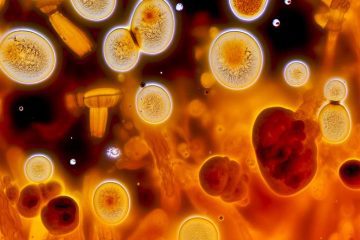Is Kombucha a Healthy Source of Caffeine?

Is Kombucha a Healthy Source of Caffeine?
Kombucha has been gaining popularity in recent years as a health drink that offers a variety of potential benefits. One question that often arises is whether kombucha is a healthy source of caffeine. In this article, we will explore the relationship between kombucha and caffeine, as well as the potential health implications of consuming kombucha as a source of caffeine.
First, it’s important to understand what kombucha is and how it is made. Kombucha is a fermented tea beverage that is made by combining sweetened tea with a culture of bacteria and yeast. This mixture is then left to ferment for a period of time, during which the bacteria and yeast consume the sugar in the tea and produce various acids, enzymes, and small amounts of alcohol.
One of the key ingredients in kombucha is tea, which contains caffeine. The amount of caffeine in kombucha can vary depending on factors such as the type of tea used and the length of the fermentation process. Generally, a typical serving of kombucha contains about 15-30 mg of caffeine, which is significantly less than the average cup of coffee, which contains around 95 mg of caffeine.
The presence of caffeine in kombucha raises the question of whether it can be considered a healthy source of caffeine. In general, moderate consumption of caffeine has been associated with certain health benefits, such as improved mental alertness, enhanced physical performance, and a reduced risk of certain chronic diseases, including Parkinson’s disease and certain types of cancer.
However, it’s important to note that excessive consumption of caffeine can have negative effects on health, including increased anxiety, disrupted sleep patterns, and digestive issues. Therefore, the key to using kombucha as a source of caffeine is to consume it in moderation.
In addition to the potential health effects of caffeine, kombucha also offers a range of potential health benefits that are unrelated to its caffeine content. For example, kombucha is rich in probiotics, which are beneficial bacteria that support gut health and digestion. It also contains antioxidants, which help to neutralize harmful free radicals in the body and reduce the risk of chronic diseases.
Furthermore, kombucha may have antimicrobial properties, which can help to combat the growth of harmful bacteria and fungi in the body. Some studies have also suggested that kombucha may have anti-inflammatory effects, which could help to reduce the risk of certain chronic diseases and improve overall health.
In conclusion, kombucha can be considered a relatively healthy source of caffeine when consumed in moderation. The amount of caffeine in kombucha is generally lower than that in coffee, and kombucha offers a range of potential health benefits that are unrelated to its caffeine content. As with any food or beverage, it’s important to consume kombucha as part of a balanced diet and to be mindful of the potential health effects of caffeine. By doing so, you can enjoy the potential health benefits of kombucha while minimizing the potential risks associated with caffeine consumption.
[elementor-template id=”430″]
[elementor-template id=”433″]




0 Comments